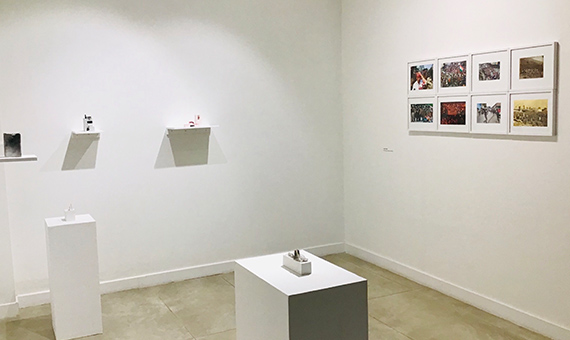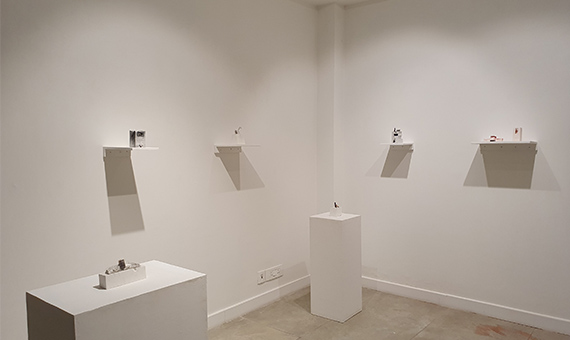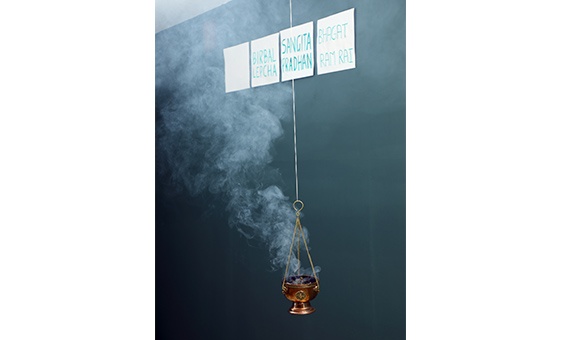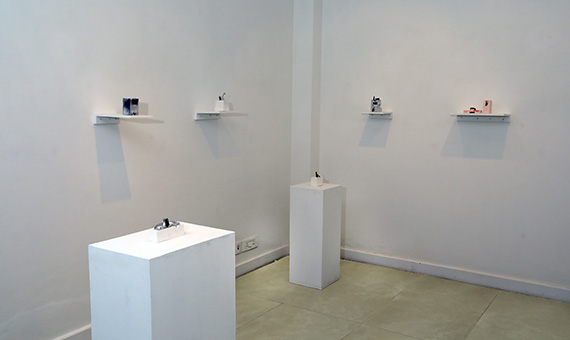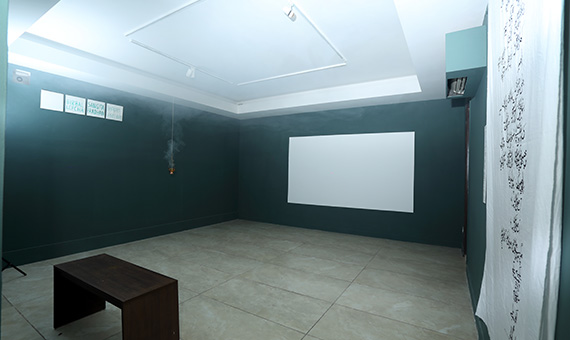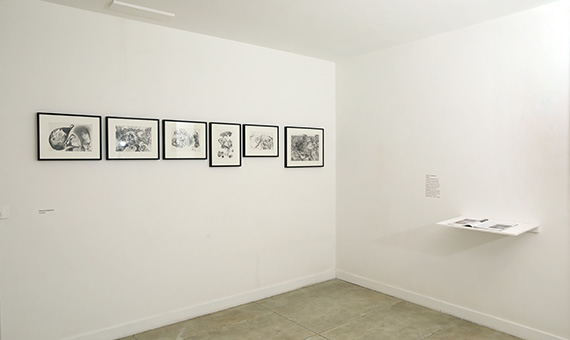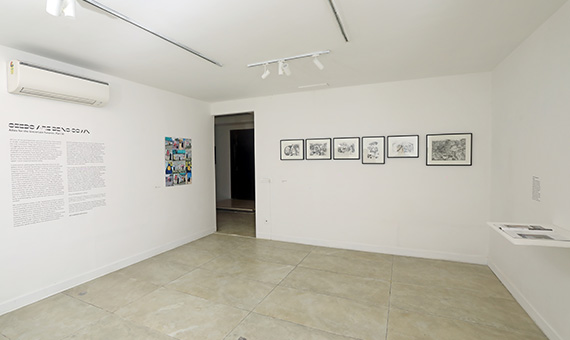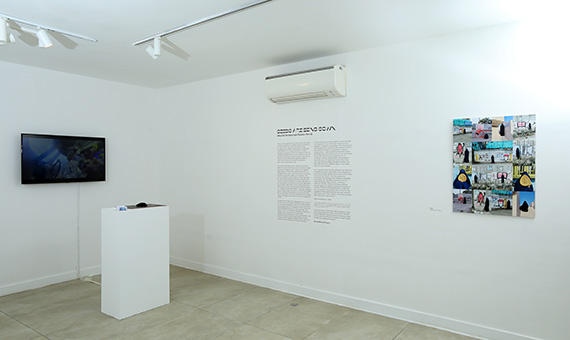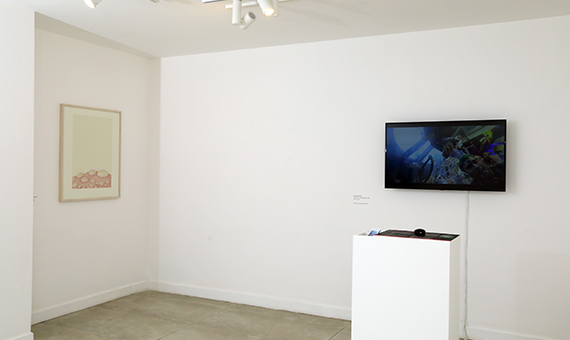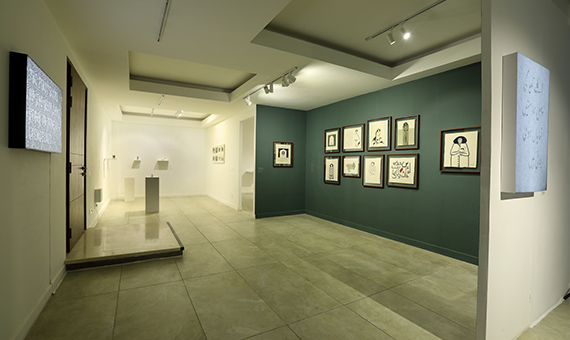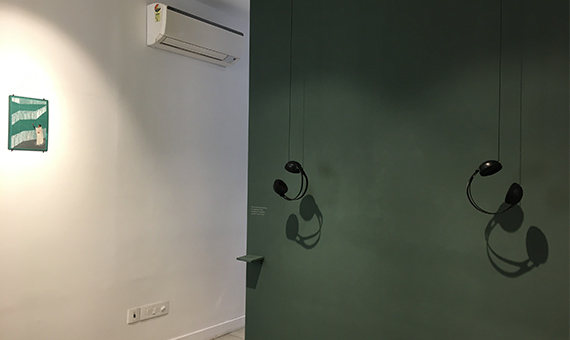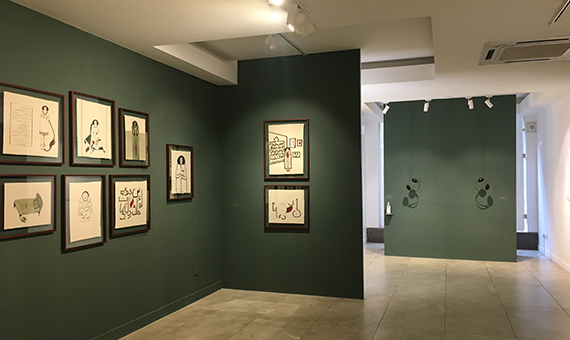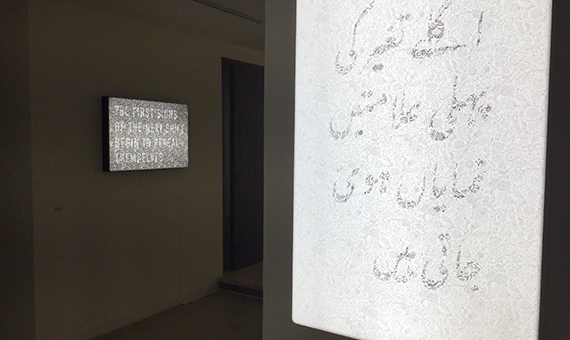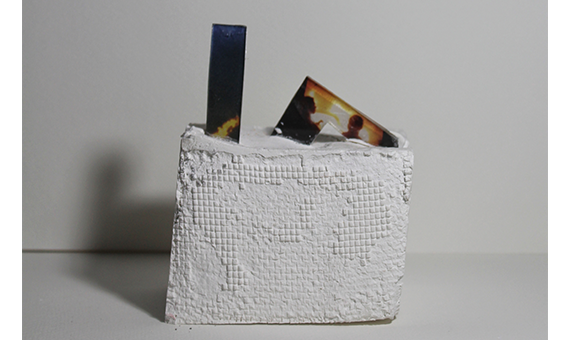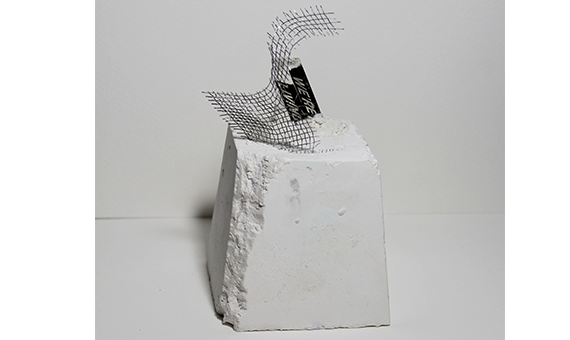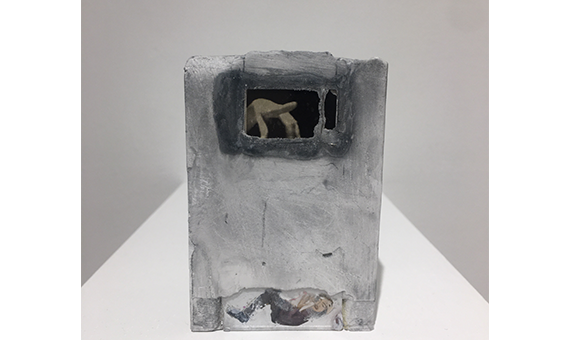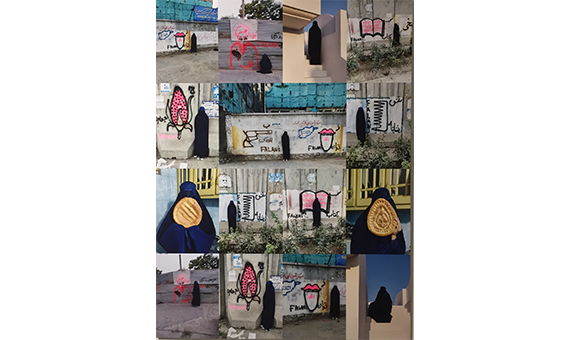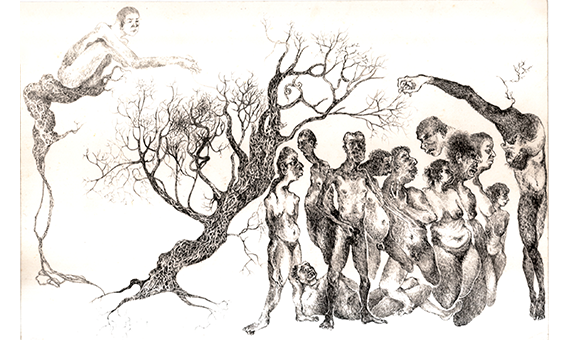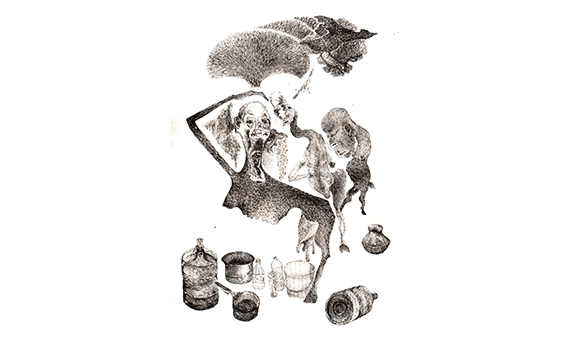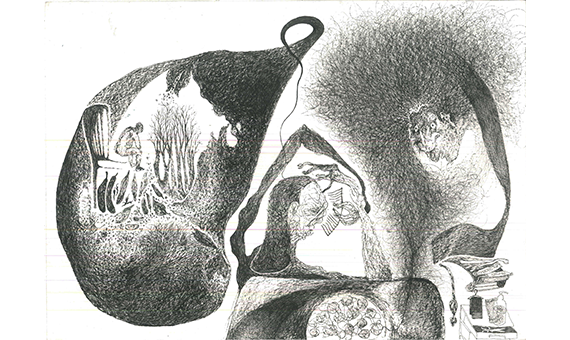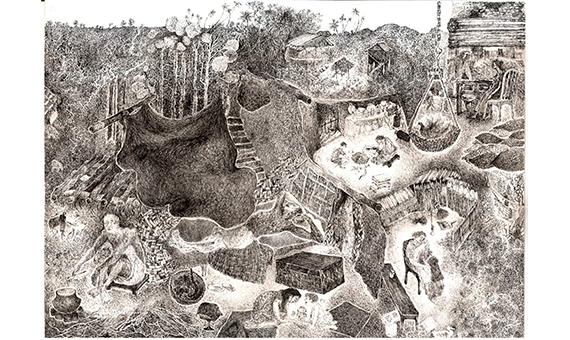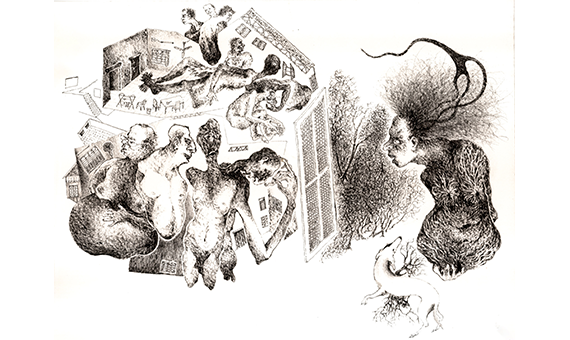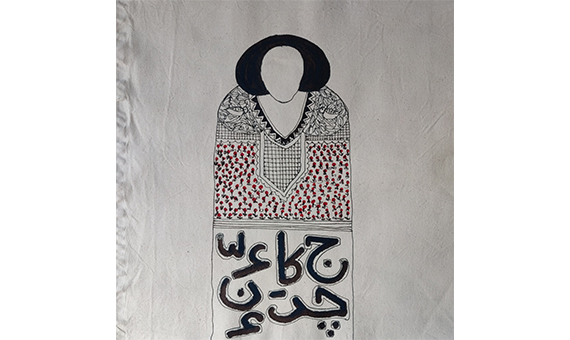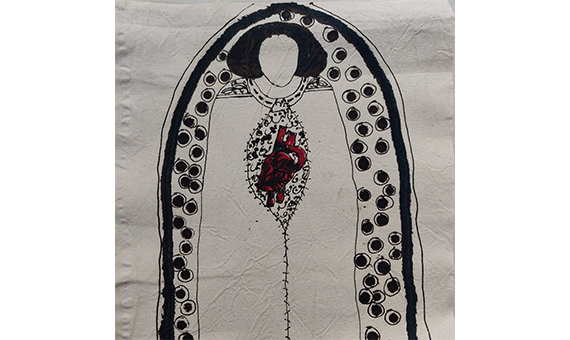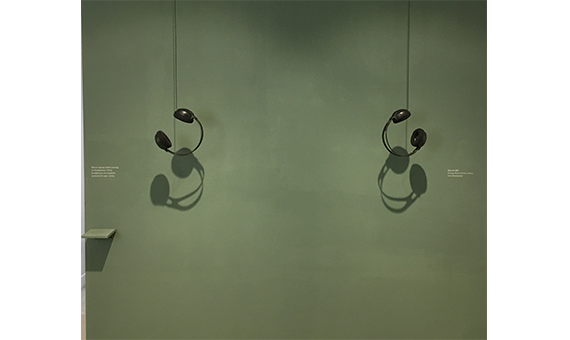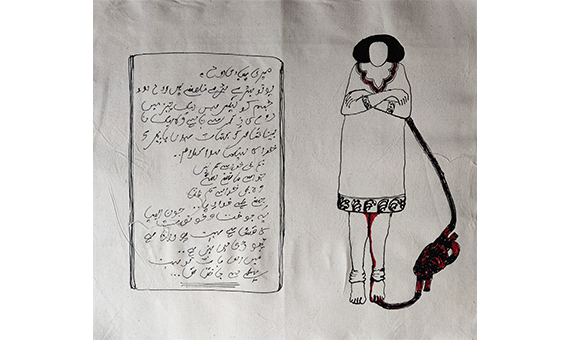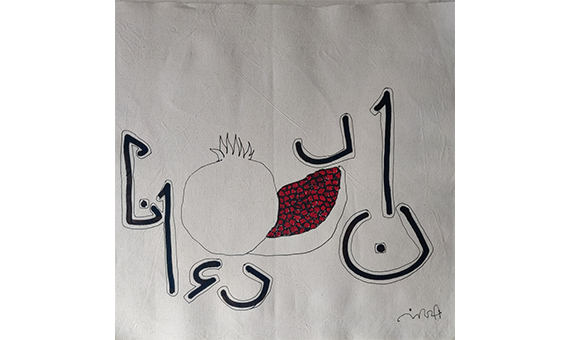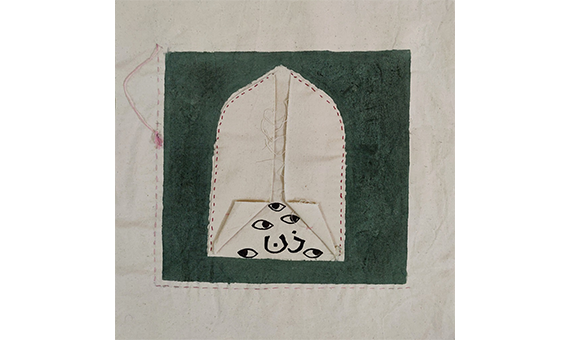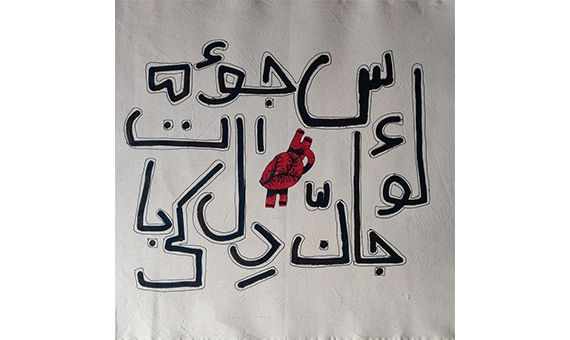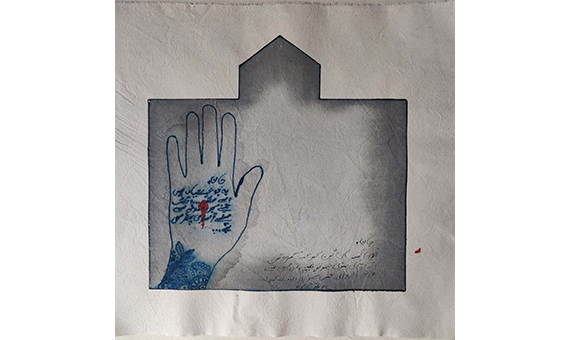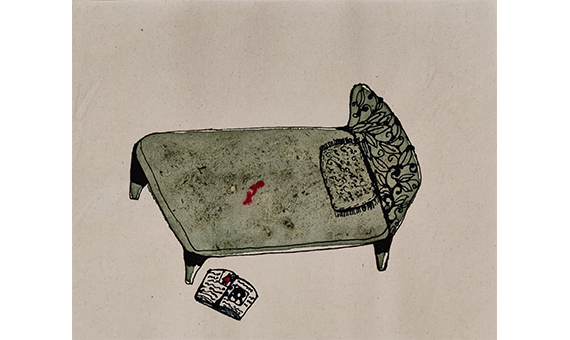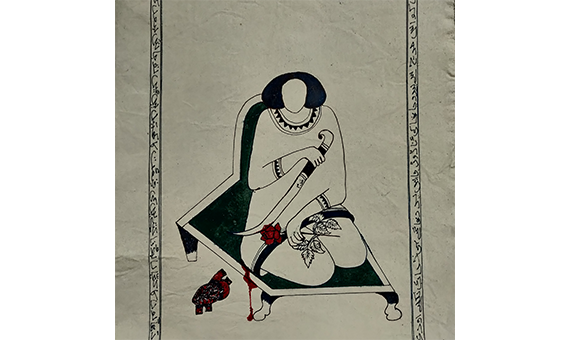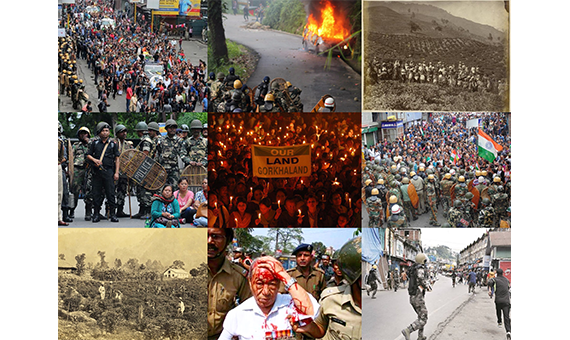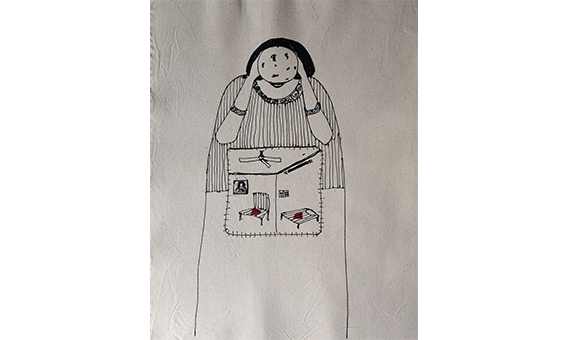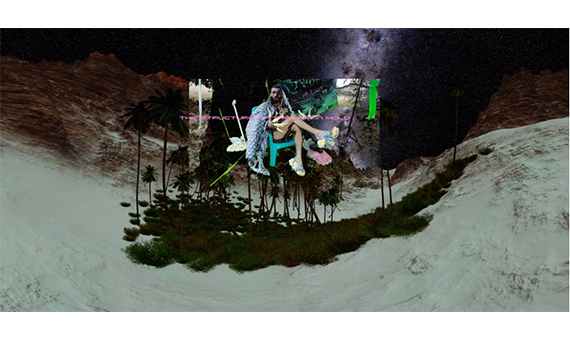About the artists
Amitesh Grover
Amitesh Grover (b.1980) is a performance-based artist in New Delhi, India. His works move beyond theatre, into visual arts, films, photography, installations, and processes. He performs, directs, writes, curates, and keeps his practice firmly anchored in the politics of performance. His works point towards ephemeral grounds of knowledge like grief, sleep, care, and work. Through his practice, he explores proximity - the conditions of being close/nearby - as a radical form of performance. He often invites his viewers to participate in his work and respond to a set of philosophical and artistic provocations. His works are shown internationally in theatres, galleries, public spaces, and on the internet. He is the recipient of several awards including MASH FICA New Media Artist award, FORECAST Emerging Artist (HKW Germany), Arte Laguna Prize nomination (Italy), Bismillah Khan National award (India) among others. He has been on numerous international artist-residencies and has spoken about his work on prominent global platforms. He writes prolifically, works in a hybrid environment, and teaches at various art universities.
Anna Ehrenstein
Anna Ehrenstein was born in Germany to Albanian parents and works in transdisciplinary artistic practice. While her mother could access a residency permit through a work visa, her father left Germany after denied asylum and started anew in Tirana. This biographical peculiarity aroused her interest in the necropolitics of migration.
The main foci of her work are reflections on the visual and material culture of the periphery, networked images, ecologies and precarious assemblages .She studied photography and media art in Germany and attended curatorial classes in Valetta, ML and Lagos, NG. Her work as an art un-educator is part of her collaborative practice. The materialization of intangible data, constructions around authenticity as currency, “high” and “low” cultures and reflections on knowledge circulation are as much a part of her process as texts and written word. She writes for magazines like Arts of the Working Class or Art leaks and works with a large number of groups on joint artistic projects, including for the 10th Berlin Biennale, as part of the queer feminist collective N * A * I * L * S or for the Critical Academy in Dublin. She exhibited internationally and is currently working on her second monograph and an upcoming exhibition at C/O Berlin.
Aqui Thami
Aqui Thami came to art to find healing and in her practice she is drawn to the ways art serves as processes of intercultural mediation. She works with experiences of marginalisation and resilience, that of her own and the people she works in collaboration with. With an ethic of social engagement and inviting viewers to inhabit and activate her works, she explores and find healing in community.
DIY (Do It Yourself), DIT (Do It Together), and sometimes DDI (Don't Do It) are the principles as well as primary mediums of her practice. They provide for merging of her life and her art offering an active engagement in both the public and the personal. Centered around the culture of self-publishing and guerrilla poster, she believes in creating art that is grounded in the act of ‘doing’ and addresses political/social issues.
The versatility of the language of the mediums she works with also allows her to bring all the layers of her experiences together. Colonialism, plantation slavery, poverty, armed violence, cultural genocide, the list goes on. It is through confronting these complexities of her identity she has been able to find healing and peace through vulnerability. In her works, she seek to create spaces for dialogue, unlearning, disruption... anything that would make one see and experience the world differently, even if it is for a fraction of a second.
Arshi Irshad Ahmadzai
Arshi Irshad Ahmadzai has graduated with a Bachelors of Fine Arts (2011) from Aligarh Muslim University and later pursued a Masters in Fine Arts from Jamia Millia Islamia (2013). Working with a range of mediums including painting, printmaking and embroidery on textiles, Ahmadzai’s artistic practice is centered around women and issues concerning them, be it their sexuality or their space in both their domestic and their community. Her knowledge of Urdu, Persian and Arabic allows her to understand the nuances of language, which find their way into her work.
Her works are mostly autobiographical and stem from her personal experiences of looking at marginalized communities around her. She is the recipient of the INLAKS Fine Art Award in 2019, which culminated with a two-month residency and a solo presentation at 1 Shanthi Road, Bangalore (2019). She has participated in ‘Out of your shadow’, a group show of six women artists from the Indian sub-continent at Gallery Espace, New Delhi (2019-20) as well exhibited at The India Art Fair (2019 & 2020) and the Delhi Contemporary Art Week (2019). Much more recently, she has just concluded a residency at The Piramal Arts Foundation, Mumbai and is working on the 5 million Incidents project offered by Goethe Institute, Max Muller Bhavan, Delhi.
Baaraan Ijlal
Baaraan Ijlal, a self-taught artist based in Delhi (India). She has been interested in exploring anonymity in her practice as essential to individual liberty. She seeks to enable listening and creating witnesses to unacknowledged stories. She creates work through direct interaction with individuals and communities. Her themes include evolution, migration, body, memory and alienation. She paints and creates installations of sound, video, light and embroidery.
Her sound installation Change Room, is an ongoing project to enable radical listening of unacknowledged stories, told anonymously towards possible change. Those who have recorded their stories with the artist present as a witness include nomads, people turned out of homes and neighbourhoods because of their sexual orientation, victims of violence and war refugees to name a few. This project now includes a growing archive of over 1000 testimonies.
Khushbu Patel
Khushbu Patel is an Indian artist. Her interdisciplinary art practice spans diverse mediums in various scales presented in the form of installations (site specific/site responding), photography, performative photography, videos, drawings and performance. Her interest revolves around the concept and idea of change, which she has tried to show through process, subjects, concepts and her choice of medium. Her process has always been bound up in time. The time duration from beginning a piece of work till the end, is what really holds the importance in her work, and brings us much closer to it. Things that arouse her interest have to do with the life of any living or inanimate object, the temporal quality of earthly existence and the inevitability of change and decomposition, the effect of time, its various marks, these are the prime sources of fascination in her work.
She is currently based and practicing in Vadodara, She did her graduation from Surat School of Fine Arts, Surat in 2015 and post graduation in Art, Design and Performing Arts from Shiv Nadar University, Delhi in 2017
Parmita Mukherjee
Parmita Mukherjee was born in 1996, and grew up shuffling between the cities of Kolkata, Delhi and Mumbai. She graduated from Srishti School of Art in Bengaluru in 2019. In 2017 she became part of a travelling arts project by Anish Victor and Maraa collective, called U/R Unreserved, where she developed a practice of using drawing and theatre as a means of observation and self-reflection. She continues to nurse a deep interest in the performance arts, and a practice of music-making and drawing. She is currently living in Bengaluru.
Pêdra Costa
Pêdra Costa is a ground breaking, formative Brazilian, urban anthropologist and performer based in Berlin that utilizes intimacy to connect with collectivity. They work with their body to create fragmented epistemologies of queer communities within ongoing colonial legacies. Their work aims to decode violence and transform failure whilst tapping into the powers of resilient knowledge from a plethora of subversive ancestralities that have been integral anti-colonial and necropolitical survival.
Some exhibitions include Manifestos for Queer Futures - HAU, Berlin 2019; Living in Foul, Hessel Museum of Art, New York 2019; DICE Conference + Festival, Berlin 2018; Matadero Madrid 2018; Multitud Marica: Activaciones de archivos sexo-disidentes en América Latina, Santiago de Chile 2017 (Museo de la Solidaridad Salvador Allende); QUEER ENCOUNTERS_VIENNA TRANS LA, Los Angeles 2017 (CalArts School of Art); WELT KOMPAKT?, Vienna 2017 (frei_raum Q21, MuseumsQuartier); Millionaires Can Be Trans // You Are So Brave, Berlin 2015 (Schwules Museum); Oral Museum of the Revolution, Barcelona 2013 (MACBA); Caos e Efeito, São Paulo 2011 (Itaú Cultural).
Rupali Patil
Rupali Patil’s visual arts practice crossfades within graphics, artistic objects, and installations. Her subjects mainly focus on social issues, especially- the subject of water and natural mineral crises. In some of her work, which relates to the term “Ecofeminism” she also depicts the impact of the industrialization on gender. Workers who became visual metaphors in her drawings inhabit an imaginary, geographically unspecified world of Patil. She also uses cartography and heterotopic landscapes, architecture in her drawing, which looks dangerously complete devoid of human existence. She has done her Bachelors in Fine Arts, from The Bharti Vidyapeeth Pune (2007) and masters in Printmaking from Maharaja Sayajirao University of Baroda (2011). Her works were presented at exhibitions such as Eros (Parasite, University Museum and Art Gallery, Hong Kong, 2014), Insert curated by RAQS media collective (IGNCA Delhi), Kamarado (Stedelijk The museum, Amsterdam, 2015), the Saltwater theory of thought-form (14th Istanbul Biennale 2015) and ‘Harbinger of Chaos’ (Bunkier Sztuki Gallery of Contemporary art in Krakow 2016-17), Habit cohabit (Pune Biennale 2017) This Rare Earth Artefact ( STUK Leuven 2018). Also, in 2014, Clark House Initiative in Mumbai hosted her solo exhibition ‘Everybody Drinks but Nobody Cries’. She lives and works in Pune.
Tehmeena Firdos
Tehmeena Firdos graduated from the Faculty of Fine Arts, MSU of Baroda with a Master’s Degree in Painting, and she currently lives and works in Delhi. Tehmeena’s works look at popular imagery pulled out of context, and appropriated to create seemingly surreal narratives. However, what visuals are seen on the surface belies the complex associations that run beneath it. Tehmeena looks at how we understand and interpret what we see and what we are subjected to. She uses various mediums and methods to execute her works, from drawing and painting, to video and kinetic sculpture.
Tehmeena has been a part of several workshops and residencies and has previously shown at FICA – The Moving Image: exploring light, movement & narrative (2017), Khoj Peers Share (2016), and most recently at UTSHA Artist Residency, Bhuvaneswar.
“Of late, I have been painting, recording sounds and making videos which bespeaks my journey through problems. But when I started articulating these problems, the problems started reflecting back- people have already been facing it. These become popular problems. My works which incorporate text and space, also enhance the idea of local and popular cultures- of landscapes and personal reactions of individuals. Focusing on current situations of an active and responsible generation”

